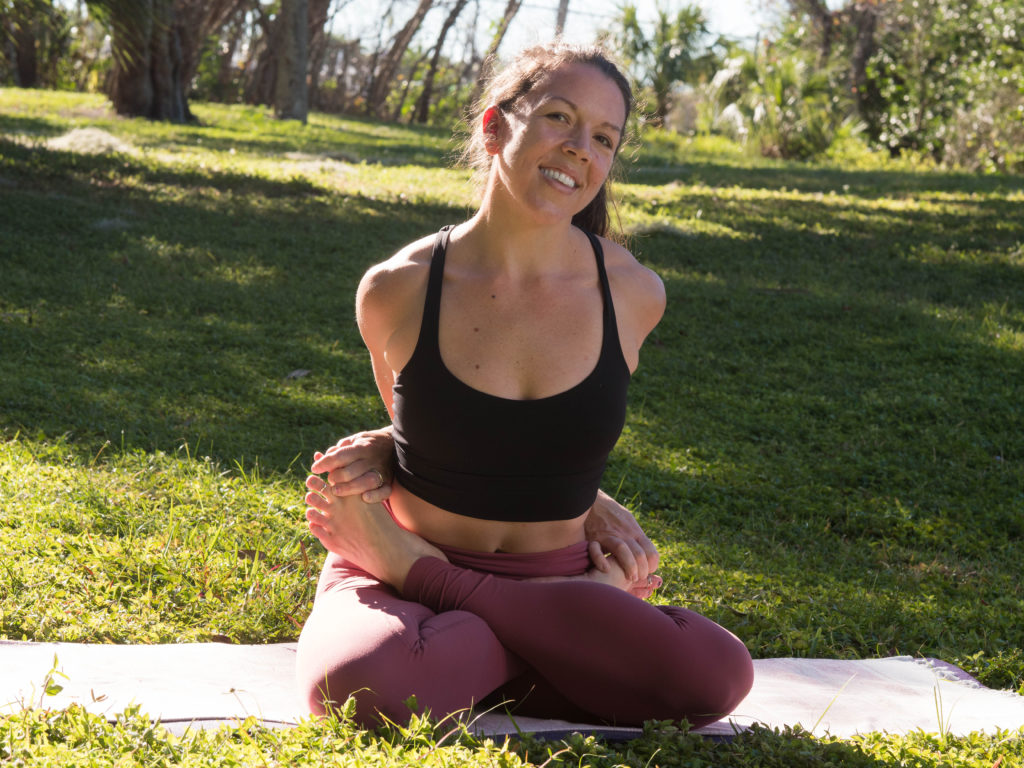Could truthfulness change the world? If each soul on this planet were to accept a complete practice of truthfulness into their lives, how would the global social norms be altered?
Practicing truthfulness is not limited to simply avoiding lying. Truthfulness also involves an honest view of all of our actions. The activities we participate in, the food we eat, the way we treat our body, the way we keep our home, etc. If any of these actions are not aligned with our internal core values, this is a form of non-truthfulness.
A pure practice of truthfulness is a powerful opportunity to examine your perception of the world around you and how you engage with it. When journeying into the practice of noticing patterns of truthfulness/non-truthfulness in your life, it’s important to understand this practice must be rooted in non-violence (ahiṃsā). Ahiṃsā, the first of the Yamas, is the foundation of the ladder of Patañjali’s Aṣṭāṇga Yoga system and all actions (even honesty) must be rooted in non-violence first, in order to maintain the appropriate foundation for the spiritual journey of yoga.
Satya is non-violent truthfulness in thought, word and action. Below you’ll find a couple of journaling questions to help you deepen your exploration of Satya.
What does it mean to you to be truthful? Beyond your spoken words, what else is included in this definition of honesty? As you sit and contemplate these ideas, remind yourself of your practice of kindness toward yourself.
Do your thoughts embody truthfulness? If not, how often is your inner monologue untruthful to you? How does your level of stress or calm transform your inner monologue?
How often do you witness un-truthfulness in the world around you? Are there non-violent and honest ways for you to transform those untruths?
How could practicing truthfulness encompass all eight limbs of yoga and guide the aspirant toward freedom?
This practice of journaling and meditating on these questions (and the questions they inspire you to contemplate), can be a powerful tool for self-study and will continue to elevate your spiritual journey. Stay rooted in the concepts we have discussed earlier: Kriyā Yoga and ahiṃsā and remind yourself these practices are a means to overcome suffering and lead us toward peace.
Currently, we’re exploring each of these Yamas (mahāvrata) as well as the Niyamas and trying to understand how we can start to integrate the lessons of these guidelines in our posture practice and our daily lives. Share how you’re experiencing and practicing truthfulness today and everyday with our Ashtanga community and read what others are learning by following #yogafoundationschallenge on IG.
Through the lens of our practice, we can start to view our patterns and reactions as a means to known them and adapt/change them as needed. I encourage you to practice with extra care over the next few weeks and journal about your experience on and off the mat. This will give you an additional tool to process the ideas and concepts we’ll explore throughout the challenge.
Tag @bellapranayoga in each entry along with #yogafoundationschallenge and #bellapranaashtanga to be entered in a drawing to win:
- Mysore Practice Rug
- Yogi Assignment by Kino MacGregor
- 4 oz bottle of Mahanarayan Oil
- PLUS 10% off workshops with Ajay Tokas in July 2020
See the daily schedule below and follow the tag #yogafoundationschallenge on Instagram to hear experiences from our community as well as share your own. Now, you take practice 🙂
- Wednesday, January 29 – Asteya, understanding the scope of non-stealing
- Thursday, January 30 – Brahmacarya – celibacy and what it means for the yogi
- Friday, January 31 – Aparigraha – non-grasping, feeling the difference between holding and grasping
- Saturday, February 1 – Śauca – cleanliness and why it’s so important on our spiritual journey
- Sunday, February 2 – Saṃtoṣa – contentment, feeling joy everywhere
- Monday, February 3 – Tapas – self-discipline as a path toward freedom
- Tuesday, February 4 – Svādhyāya- self-study, repetition of mantras and calming the mind
- Wednesday, February 5 – Īśvara Praṇidhāna – connection to the unknown

